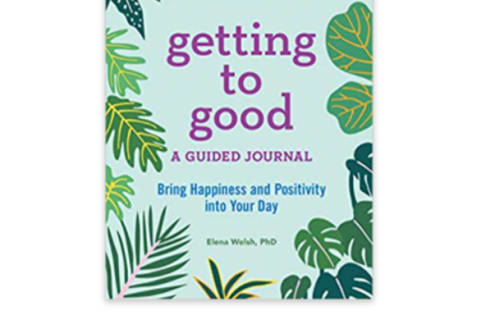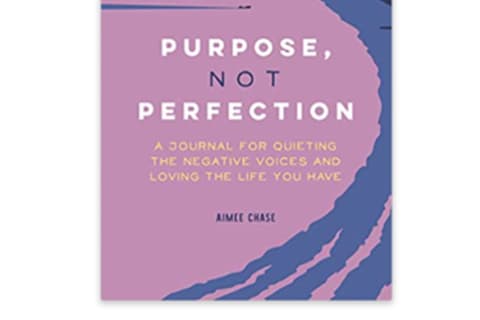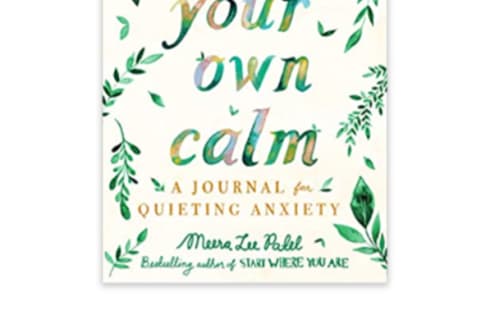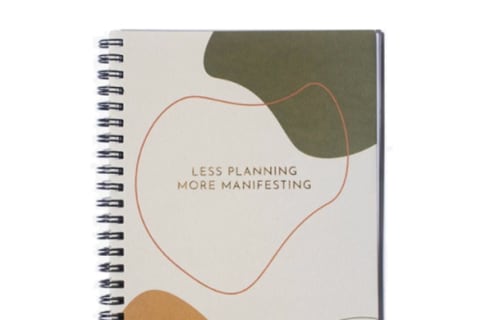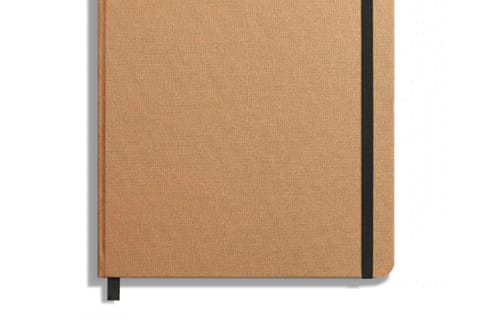“You don’t have to rack your brain to consider what you’ll write about. You don’t have to research. It’s all in you,” Aimee Chase, author of the guided journal Purpose, Not Perfection, says of what differentiates journaling from other forms of writing. The purpose of journaling is different too. While most writing is about opening up and sharing, journaling is more about looking inward and exploring what makes you tick. “The purpose of journaling is to awaken conscious thinking, which is simply having an honest conversation with yourself,” says Meera Lee Patel, an artist and author of many guided journals; Create Your Own Calm most recently. “That doesn’t mean being conscious of your writing—of the words you’re using or the sentences you’re forming,” Patel adds. “In fact, if being hyper-aware of your writing is causing you to censor yourself, it defeats the purpose of journaling.” Journals give you the opportunity to do just that, and they grant you safe space to name all the different emotions you may be feeling at any given moment. Welsh says that this can be beneficial to mental health, especially when compared to the alternative. “The danger of not checking in is that when we’re less aware of what we’re feeling, it’s more likely to impact our behavior,” she says. Alternatively, research shows that emotional awareness has been shown to decrease symptoms of anxiety1 and depression. Calling your attention to positives may help restore this balance. She explains that in doing so, you’re essentially training your brain to look out for the things that make you happy. “If you’re actively describing your surroundings, your brain can’t worry as much about this or that,” she says. Want to switch up your gratitude logging? Studies also show that writing with your nondominant hand can help keep the brain sharp. “Writing about my life also keeps things in perspective and reminds me that my experiences are worth telling,” she adds. “I’ve learned not only that I’m capable of change but that I greatly value continuous inner evolution.” Doing so will give you a glimpse into how your mind works. And once you step away from an entry for a while, you’ll find it easier to serve as an objective observer to your experience. Every once in a while (you can set your own cadence here), Welsh recommends reading back your old entries, pen in hand, and circling any time you exaggerated (i.e., “I will never succeed”) or put yourself down (i.e., “I totally messed up today.) “This will help you notice, and thus start to shift, unhelpful habits you might have,” she says. Welsh notes that someone who has been through trauma might have trouble with this exercise or find that writing about personal problems only reinforces them. In that case, a mental health professional may be able to help you find new ways to approach them. You can also play around with the frequency and quantity of your journaling, opting to do one or two longer entries one week and daily shorter entries the next. To help get yourself in the groove, Welsh says that journaling at the same time every day (first thing in the morning or right before bed are popular) or pairing journaling with another daily habit (like drinking coffee) can make it more second nature. Chase recommends choosing a time when your mind is the clearest and you have the fewest distractions. Instead, be realistic about the amount of time and energy you have to put into your journal, and tailor your practice accordingly. “I place far less importance on how much time I spend journaling, concentrating instead on how it makes me feel when I do: which is usually in a better place than before I started,” Patel says. Chase adds that “our lives are all just too busy to lounge about journaling for hours, so I propose keeping your sessions short… And sometimes, if I really don’t want to journal, I don’t force it. Journaling should be fun. It should be a release, not an assignment or a duty.” For Chase, that means leaving a journal out on her nightstand so it’s within arm’s reach before bed. Those with a more spontaneous personality may want to keep theirs in their bag so they can write on the go, Patel says: “Make it easy for journaling to become a part of the routine you already have.” But again, if a day passes by and you don’t get around to opening your journal up, that’s totally fine. When Patel isn’t in the mood to write, she remembers that she’s felt this resistance before and is always glad when she pushes past it. But “if that doesn’t work,” she says, “then I let it go and try again the next day.” Emma received her B.A. in Environmental Science & Policy with a specialty in environmental communications from Duke University. In addition to penning over 1,000 mbg articles on topics from the water crisis in California to the rise of urban beekeeping, her work has appeared on Grist, Bloomberg News, Bustle, and Forbes. She’s spoken about the intersection of self-care and sustainability on podcasts and live events alongside environmental thought leaders like Marci Zaroff, Gay Browne, and Summer Rayne Oakes.



